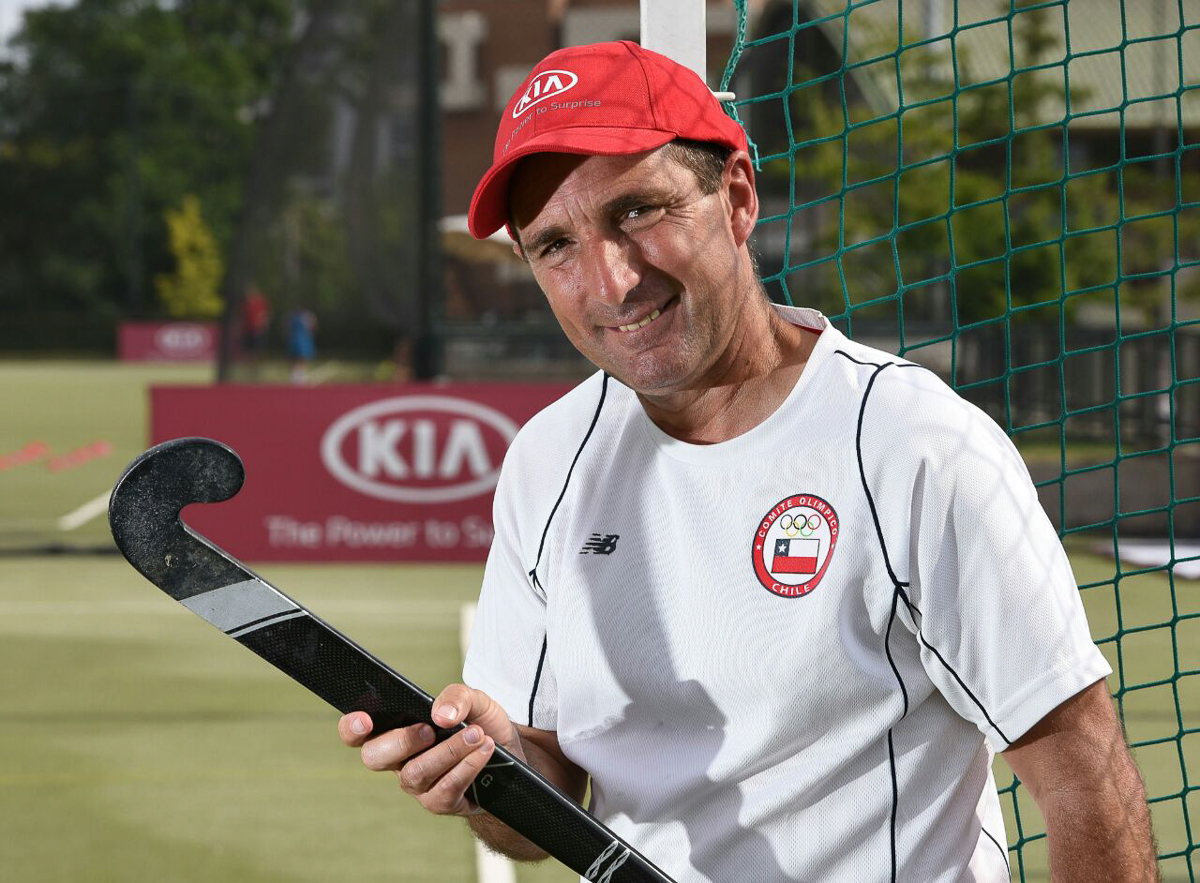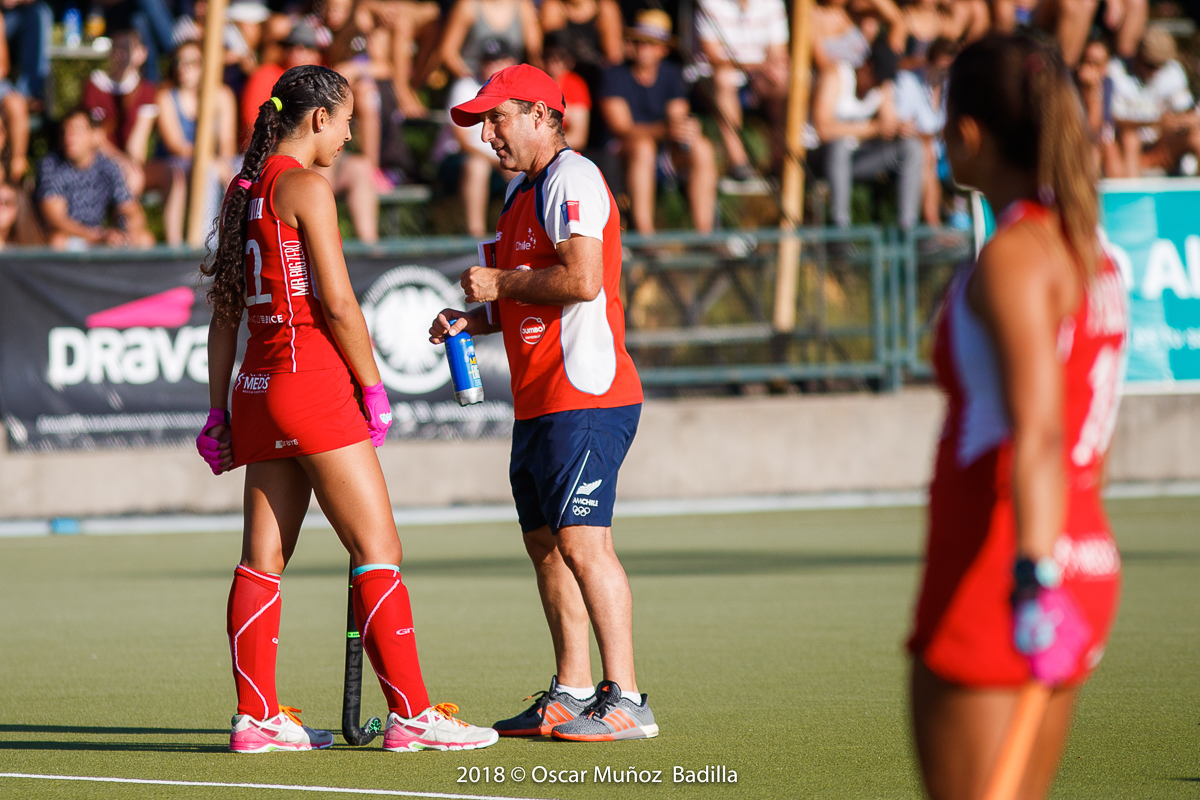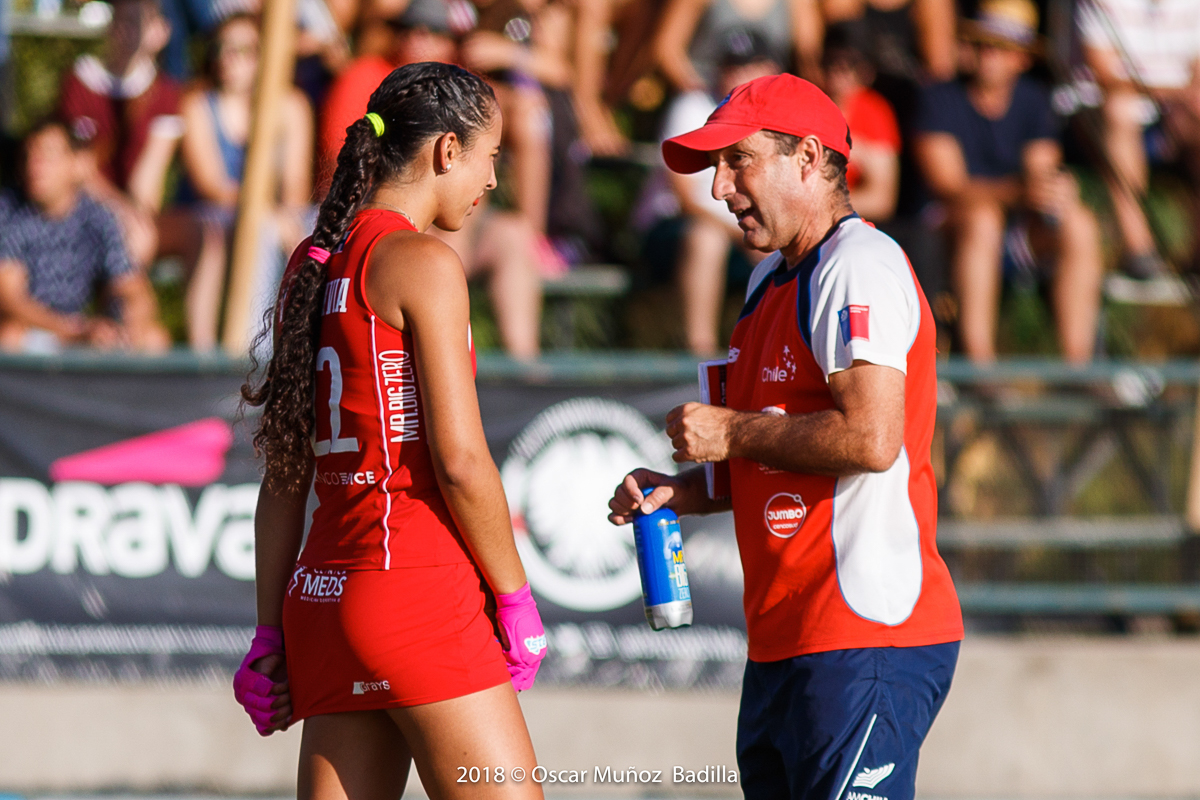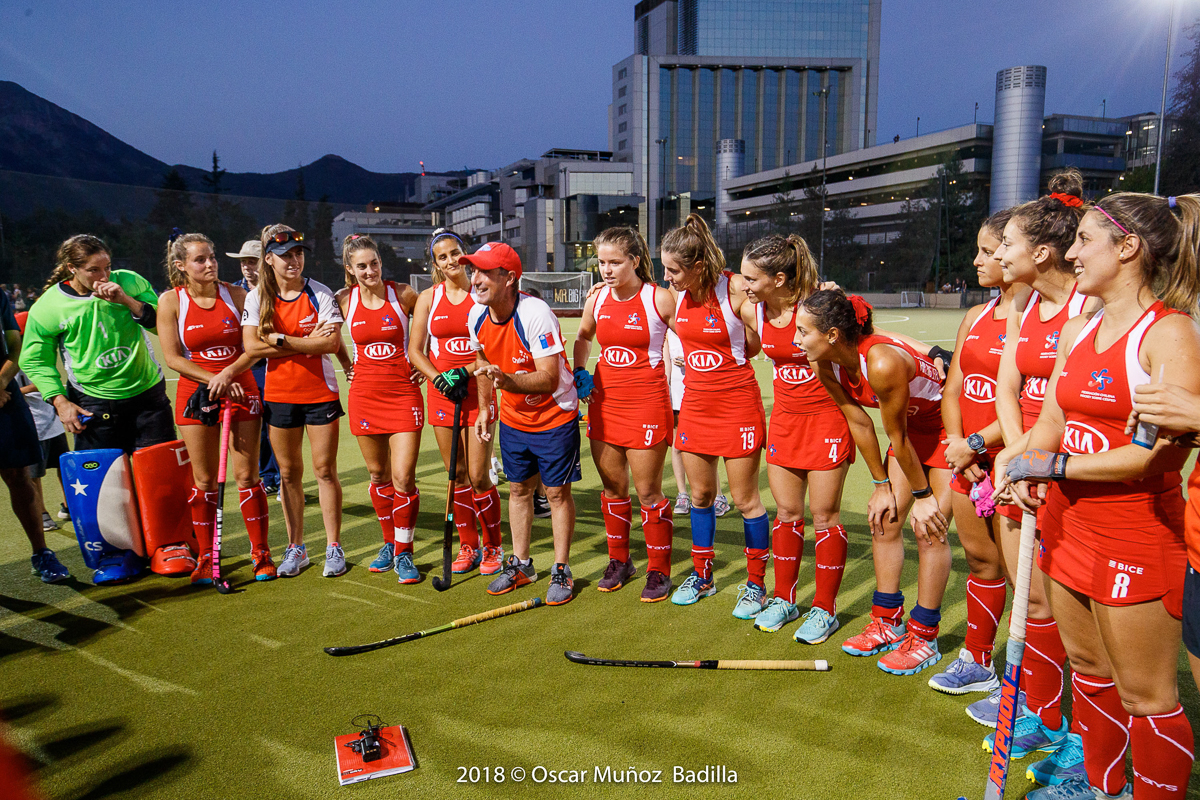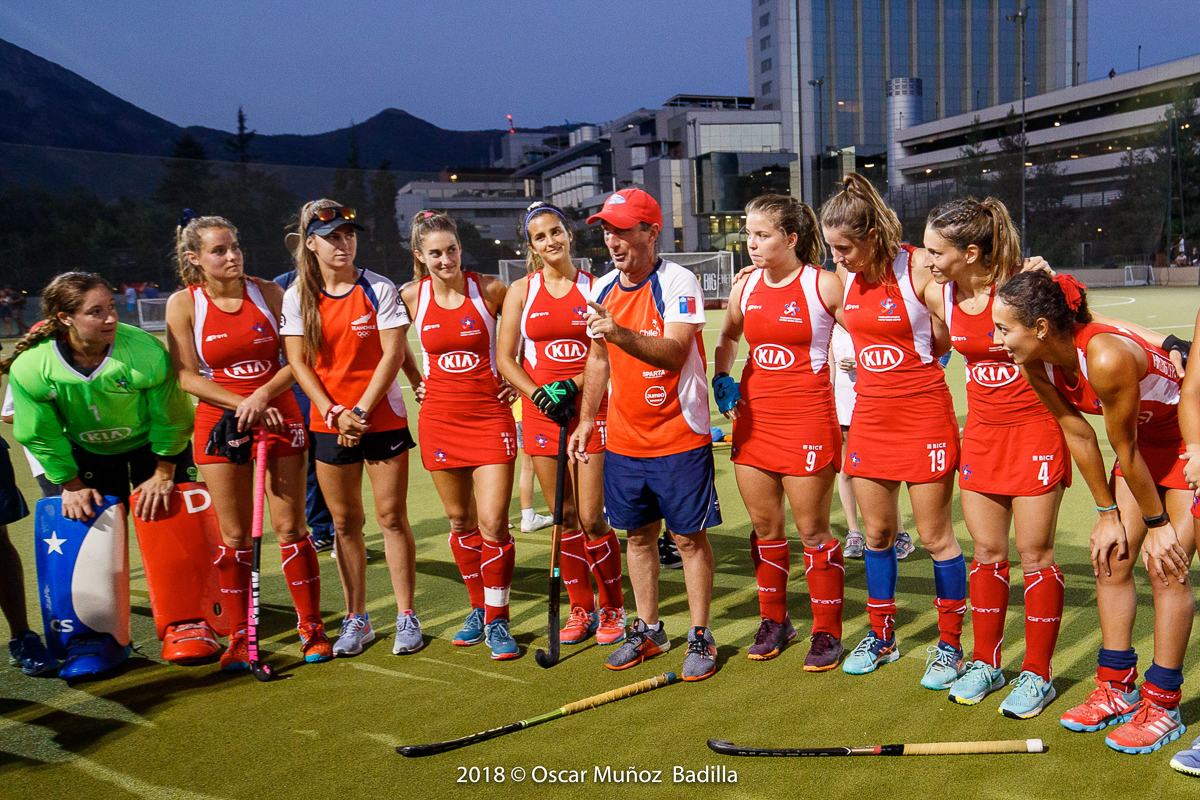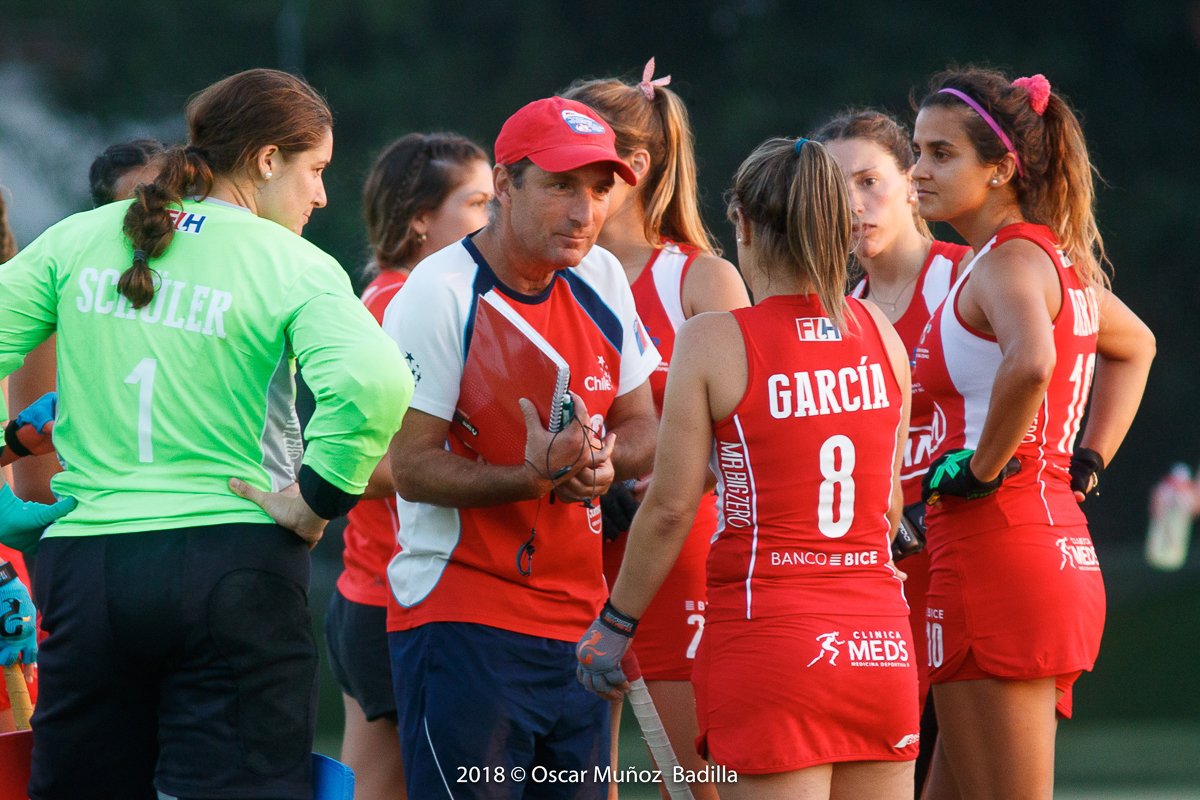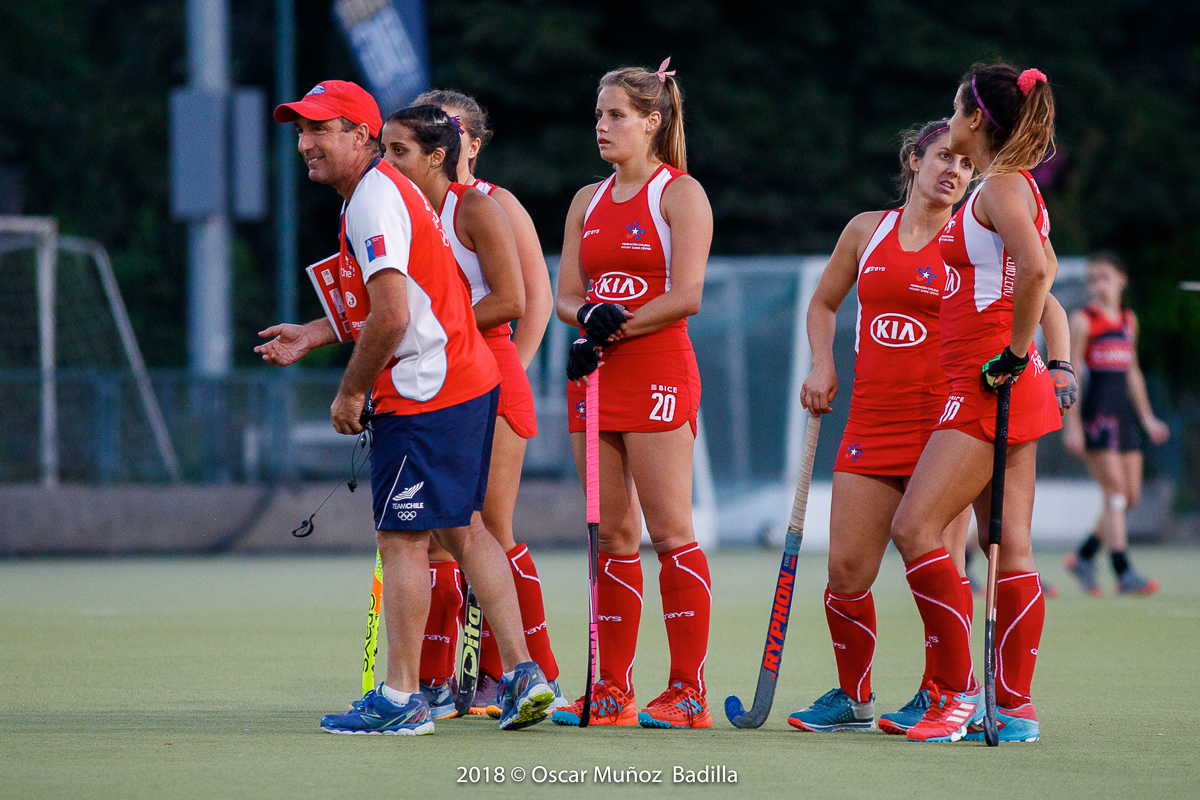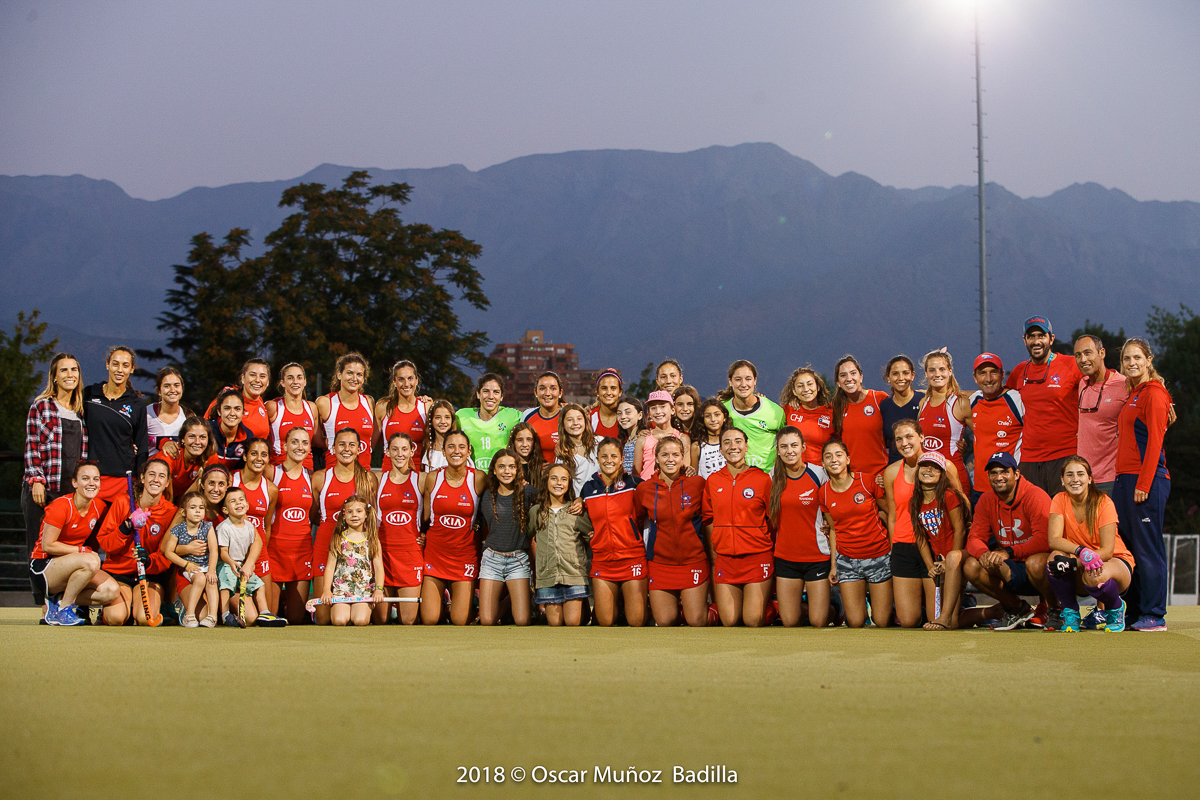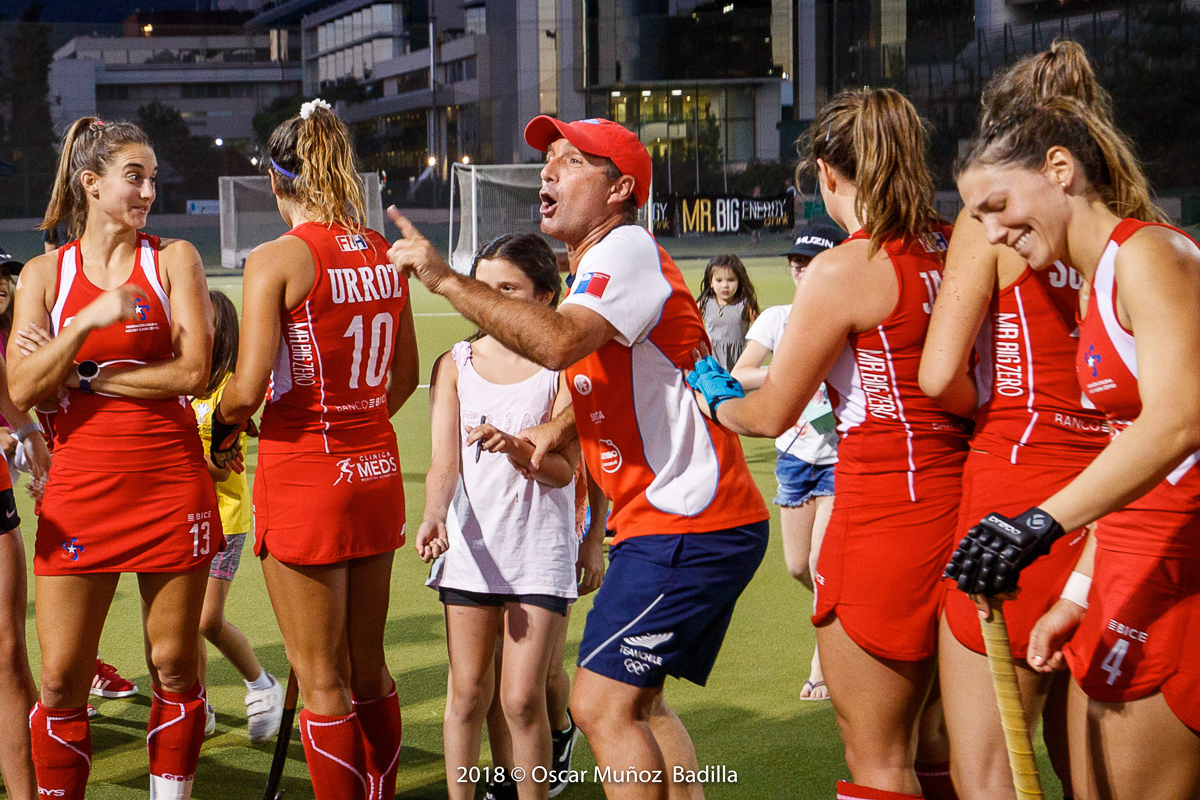
Sergio Vigil is well known to hockey fans across the Pan American region. A member of the Argentina men’s team that contested the Men’s Hockey World Cups in and 1986 and 1990, since retiring as a player, Vigil has become a living legend as a high performance coach.
Under his guidance, the Argentina women’s team won the World Cup in 2002, took silver at the 2000 Sydney Olympics, bronze at the Athens Olympics in 2004 and won many other trophies besides. He also spent four years, from 2004 until 2008, coaching the Argentina men’s team.
Now Vigil is using his coaching magic to transform another South American team – Chile women.
The Diablas have been impressing the hockey world in recent years, not just in South America but across the globe. They have moved up the FIH Hero World Rankings (WR) to 15th courtesy of good performances in the 2017 Hockey World League series as well as a first silver medal at the Pan American Cup.
At the Hockey World League Semi-Finals in Johannesburg, Chile – who were ranked 20th at the time – finished in ninth position. Among the performances that surprised the higher ranked teams was a 1-0 defeat of South Africa (WR: 13) and the 2-1 defeat of Poland (WR: 18). The belief that Vigil had installed in his team was verbalised by Denise Krimerman who, rather than being delighted at her team’s performance, mourned the fact that Chile had not qualified for the World Cup via the HWL Semi Finals.
Things got even better when Chile took silver at the Pan American Cup in Lancaster, USA, in 2017. Beating the home nation, who were ranked fourth in the world at the time, was a triumph for a nation that has been languishing in the mid table of hockey nations for so long.
So what is the magic formula that Vigil is employing to get his players to perform so well and so consistently?
First and foremost, Vigil has encouraged his players to set lofty ambitions and to put the team above all else. “They are prioritising hockey and committing to improving their performances. These players have chosen to take charge of their own sporting future and to commit to making the dreams become a reality. And they play for the shirt, they will battle to deliver on the field in the name of the Diablas shirt.”
Where many coaches will talk about processes and targets, Vigil takes an almost poetic approach. He talks of player’s creating their own dreams, following their pathways and being a ‘fist’ rather than a ‘pointing finger’, because a fist meets you [the symbolic fist-bump] and never points at you [in an accusatory manner].
The beacon that guides his players, says Vigil, are based in four tenets: trust, conviction, communication and consistency.
On a practical workaday level, Vigil adopts a team-based approach. Working groups comprising coaching staff and players are encouraged to discuss issues and come up with solutions. It is important, he says, that each member of the group feels valued and listened to.
The Argentine is clearly impressed with the level of commitment his players are showing so far. At both the Hockey World League Semi Finals and the Pan American Cup, the team faced tough challenges from higher ranked and far more experienced teams, but they both stepped up to the challenge and put pressure of their own on the opposition. The surprise factor worked in Chile’s favour and Vigil barely surpasses a smile when he refers to the spirit his players demonstrated in these matches.
But Vigil and his players will not dwell on past successes. Now is the time to capitalise on the experience gained at the hands of high ranked teams such as Argentina, India and USA. “We need to get stronger and fitter as a team and we must build on our strengths that have served us well so far. When we fall, we must get up stronger.
“There is always improvement to be made. Every day we learn something new, whether it be tactically, technically, physically, mentally or spiritually. Chasing success is an ongoing challenge.”
And in line with this sentiment, Vigil sees his role as just one part of a much bigger picture. “We must have the ‘big dream’; we must have a strategy to get there; and we must take short steps to get there.”
The ultimate dream is for Chile women to qualify for the Olympic Games, but he says, this is not something that the current group of players and coaching staff can achieve in isolation. It has to be the ambition of all hockey players and supporters in Chile, from the grass roots to the elite level. This is the legacy that Vigil hopes to leave. “It is like being a farmer growing bamboo. You leave a fertile field and a footprint so that others can follow, nourish and improve upon your work.”
I asked how Vigil views hockey across the South American region?
“I see that hockey in South America improves almost daily. Las Leonas have been instrumental in this happening. They lit a flame on the continent and taught us that if you are allowed to dream and then follow that dream with conviction, effort, courage, creativity, trust and humility, then the impossible becomes possible.
“Team such as Uruguay and Chile have grown a lot and play international hockey. Unfortunately both teams lack their own pitches where they can train for longer and under better conditions and make the next step into elite international hockey.
“Paraguay has shown great potential and continues to grow. Peru too, is developing quickly and Lima will provide a great venue for the Pan American Games next year. Bolivia is a young nation that is thirsty for success. The Odesur [South American] Games in Bolivia will provide a great boost for hockey in hat country. Venezuela has its issues but we are all here to help them develop the sport.”
Above all else, Sergio Vigil takes a sanguine approach to his team’s performance, believing that each result, win or lose, can be turned into a positive learning opportunity. It is the only way, he says, that you can achieve longer term success.
And in an aside, which sums up the character of this charming Argentine, he ends the interview with an exhortation to “Love what you do, go crazy, be insane about it!”
Pictures by Oscar Muñoz Badilla.
